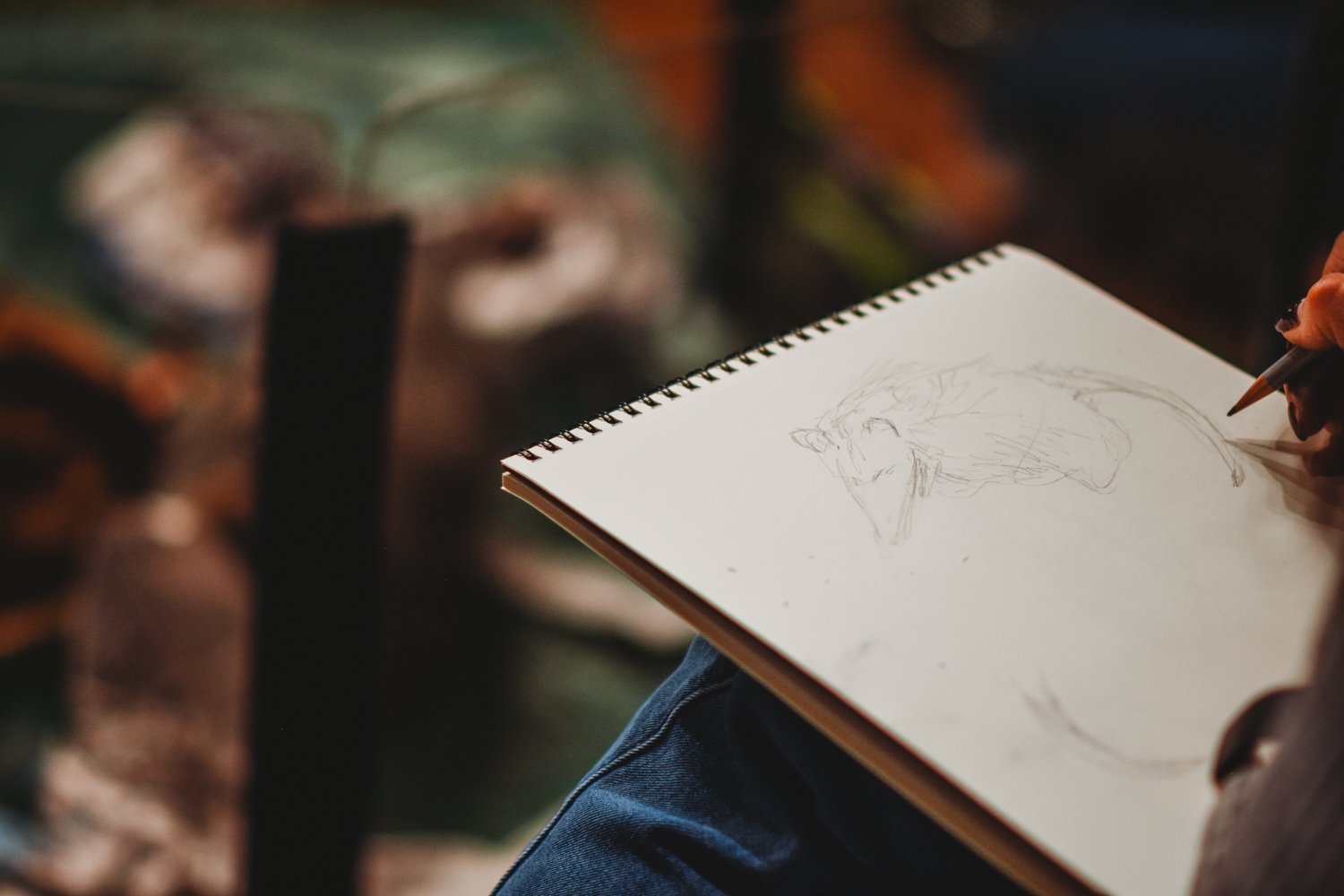Programs & Activities at MABA Education Center
Programs for Groups at Museum of American Bird Art Education Center
Museum of American Bird Art Education Center offers a variety of fun and educational nature-based programs for community groups, scout troops, and more.
Adult Community Groups
Group programs offer a chance to experience nature and wildlife in unique and engaging ways. These programs are suitable for senior centers, libraries, garden clubs, historical groups, and other adult clubs and organizations. Programs typically 1 hour in length, with 45 minutes of content and a chance for Q&A.
We offer a variety of topics in person and online. Don't see what you are looking for? Contact us
Year-round
Ever wondered about the winged and feathered animals that live around you? Why do some migrate and others stay over winter? This illustrated lecture will feature birds that are commonly seen and give you a glimpse into their lives. It will also introduce you to different community science resources such as eBird and iNaturalist.
There is nature all around us, even in the most urban spaces. You don’t need to leave your town to find something interesting. Learn all about the wildlife in your neighborhood, be it more rural or more urban, and about why and how these animals live there.
Explore your local nature space through an outdoor walk. Participants will observe local species living within a particular habitat with a naturalist guide. Learn about the plants, animals, and the ways in which they survive in a specific area.
Winter (December-February)
Learn about the marvelous adaptations animals in Massachusetts have to survive and thrive in our winter world. Dive into topics like who hibernates, how birds find and store food, and what animals migrate to Massachusetts for the winter.
Snowy owls, ducks, and certain songbirds are in Massachusetts during the colder months, but not during the rest of the year. Learn why these birds migrate and survive the harsh and unpredictable winter weather.
March is the sweetest time of the year at Mass Audubon. Learn about the process of turning sap into syrup, the different techniques and equipment used across New England, and why Sugar Maples are so unique.
Spring (March-May)
Discover animals that come back to Massachusetts after the long winter months and the ones that have been here all year. Learn where to find spring animals and how you can help and support wildlife during this critical time of year.
Discover which frogs and salamanders live in Massachusetts and how they survive the harsh winters. Learn about vernal pools, the difference between a frog egg and a salamander egg, and the intense life cycles of these fascinating amphibians that live in Massachusetts.
Learn about some of the common native plants of Massachusetts and how to identify plants on your own. Discover common invasive species, threats to native plants and what you can do to protect them. Then learn how to incorporate wildflowers and native plants into your own landscape!
Some birds return to the same nests year after year, while others find a new location to settle down for the summer. Learn about some local species migration routes and behaviors, the impacts of climate change on migratory species, and understand why birds migrate to Massachusetts.
Summer (June-August)
As the heat and humidity increases, it’s time to discover the adaptations and behaviors animals use to stay cool. Learn how summertime affects the behavior of Massachusetts wildlife, and how climate change is playing an important role throughout the state.
Massachusetts has over 1,000 species of insects that live and feed on the plant life of New England. Learn about the moths, beetles, bees, and butterflies of Massachusetts and their importance the ecosystem.
Fall (September-November)
This program discusses what happens to animals and nature during the fall in Massachusetts. Learn why certain animals need leaflitter to survive, how are animals preparing for winter, fall migrations and more!
Many different factors effect when birds migrate in the fall. In this presentation we will discuss external and internal migratory cues birds use to determine when the time is right to move from their breeding range to their wintering range.
During this program, you will learn about the exciting ways that monarch butterflies migrate thousands of miles each year. Discover the fascinating life-cycle of monarchs and their survival even in harsh conditions.
Pricing
- 1 hour presentation: $175
- 1 hour nature walk: $155
- 1 hour presentation with live animal encounter: $250
- 1 hour presentation plus 1 hour nature walks*: $275
- 1 hour presentation plus ½ hour nature walk*: $255
*Nature walks taking place off-site need to have a set location before booking will be confirmed.
How to Book
To inquire about booking a program, please contact us.
Scout Programs
The Museum of American Bird Art Education Center offers programs for all levels of girl and boy scouts. Our educators are available to lead groups, exploring diverse habitats of the wildlife sanctuary and covering many natural history topics and art. We can design a program to fulfill the requirements of a specific badge.
Special programs include Introduction to Pottery and Digital Photography. MABA Education Center can also bring programs to your den meetings such as Animals in Winter and Bird Discovery. Self-guided hikes can also be arranged. Programs are offered after school or on weekends. Ask us about opportunities for Eagle or Gold Award projects. Email us to learn more.



